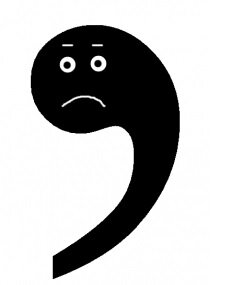As a former English major, maybe I am more sensitive than most regarding certain aspects of spelling, syntax and grammar. I know that my kids react at times to the oversight of their homeschooling Mom … who out of the blue might just offer a word of correction when they are least expecting it. I tend to be more lenient … recognizing that we live in the age of email where quantity of communication takes precedent over accuracy of format. However, when it comes to the abuse of the poor, hapless apostrophe I must speak up.
Nothing drives me more batty than having to correct mistakes in this area. Some people operate like apostrophes are gold stars to be sprinkled around liberally for some type of emphasis. Other people have mastered the art of being consistently wrong in this application.
There really are only a few key rules to master in order to be apostrophe certified. Let’s use this arena to review them briefly. When I went out to Google to copy and paste said rules, it did my heart a world of good to find a kindred spirit who back in 2001 established the Apostrophe Protection Society!
The Apostrophe Protection Society was started in 2001 by John Richards, now its Chairman, with the specific aim of preserving the correct use of this currently much abused punctuation mark in all forms of text written in the English language.
The rules concerning the use of Apostrophes in written English are very simple:
1. They are used to denote a missing letter or letters, for example:
I can’t instead of I cannot
I don’t instead of I do not
it’s instead of it is
2. They are used to denote possession, for example:
the dog’s bone
the company’s logo
Jones’s bakery (but Joneses’ bakery if owned by more than one Jones)
… but please note that the possessive form of it does not take an apostrophe any more than ours, yours or hers do
the bone is in its mouth
… however, if there are two or more dogs, companies or Joneses in our example, the apostrophe comes after the ‘s’:
the dogs’ bones
the companies’ logos
Joneses’ bakeries
3. Apostrophes are NEVER ever used to denote plurals! Common examples of such abuse (all seen in real life!) are:
Banana’s for sale which of course should read Bananas for sale
Menu’s printed to order which should read Menus printed to order
MOT’s at this garage which should read MOTs at this garage
1000’s of bargains here! which should read 1000s of bargains here!
New CD’s just in! which should read New CDs just in!
Buy your Xmas tree’s here! which should read Buy your Xmas trees here!
Note: Special care must be taken over the use of your and you’re as they sound the same but are used quite differently:
your is possessive as in this is your pen
you’re is short for you are as in you’re coming over to my house
Heres hoping this quick review has been informative. (Just kidding of course.)

